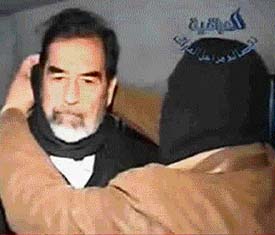|
stamped Impressions
Stick to facts, show
restraint
Reeta Sharma
IT
happens only in India, where people go ahead and comment on
anything without any fear of repercussions. Whether it is Saddam’s
hanging or Jessica’s murder or Abu Salem and Monica Bedi’s
case or the Nithari killings, people comment without restraint.
Our nation has yet to learn how not to hamper ongoing
investigations or unwittingly tilt them in favour of the
criminals.
The Press
Council of India has laid down the ethics of journalism. But
today a majority of the newspapers as well as news channels are
flouting these guidelines. The Press Council undoubtedly is a
toothless body and cannot take stringent action against anyone
flouting these guidelines. But then the question is does one
need to weild a stick to ensure ethical coverage of events?
Should the media not exercise self-imposed restraint to earn the
right of being the watchdog of society?`A0
Comments of
anyone and everyone reach your doorstep, thanks to the media.
The electronic media in particular pays little heed to what
should be quoted and what should be avoided. Take, for example,
Saddam’s hanging. Taking bytes from the general public only
showed a paucity of ideas on the part of the producer of the
programme. This was a case of intricate international politics
besides Saddam’s own questionable role in it. Neither was
Saddam innocent nor was the judgement fair and born out of a
democratic set-up. Yet people were allowed to come on camera and
display their lack of understanding of the complexities of
Saddam’s case. Only experts on international affairs should
have been asked to comment in this particular case.
Similarly in
the case of Jessica’s murder, when the trial was being held,
Manu Sharma’s father and many a friend were quoted. All
friends made statements to the effect that "he was always a
very sweet fellow", "very friendly",
"affable and kind", "cool", etc. His father
made the most obvious statement that his son was not guilty.
Now, how relevant can such comments be for the investigation?
`A0`A0`A0`A0`A0`A0
The media, of
course, is a big help when it highlights the errors in
judgements and forces cases to be reopened, like the reopening
of Jessica’s case. But the media should make sure that no
space or footage is wasted on statements that could lead to
trial by it.
Media in the
West largely does not transgress its role of being a
dispassionate watchdog. The significant point to note is that
they never violate the privacy of either the accused or his
family members. You must have read about the recent case of a
serial killer who killed five prostitutes in the UK. He has been
arrested but there is no mention of his family or quotes from
any friends or relations. The trial is on and the media is
reporting about the court’s proceedings in a matter-of-fact
way. `A0`A0`A0
But here, the
trend is to chase the families of the accused. The latest to hog
the space are Moninder Singh and his servant Satish, accused of
killing 35 children and women. Where is the need to quote
Moninder Singh’s son, who said, "My father can never do
it and we are going to Delhi to hire advocates to defend
him." His wife said, "The media is getting on our
nerves but my husband cannot be involved in it."
Of what use are
these statements. Why should we expect any immediate family
member to say that their relation is guilty? Let the
investigations prove whether they are guilty or
not.`A0`A0`A0`A0`A0`A0`A0`A0`A0`A0`A0
The manner in
which we report both in print and electronic media, we often end
up making heroes of our criminals. Take the case of Abu Salem.
We devoted so much space and footage to him that today he is
being offered a ticket to fight election. It is also the role of
a watchdog to take note that criminals are getting voted to
power. Hence, we should make sure that no criminal is
highlighted so much that he turns into a hero or heroine like
Phoolan Devi. Even if her victimisation had led her to be a
dacoit yet she did not deserve to be a leader in Parliament, as
she was responsible for killings. But thanks to media’s undue
coverage, she achieved what she as well as the nation did not
deserve.`A0 `A0
Today, news is increasingly
becoming a soap opera. Not only are we unnecessarily dragging
families and friends into the news but we are also misusing our
position in the media by being judgemental. Newspapers and the
electronic media are using expressions like vehshi, darinda, and
haivan for Moninder Singh and Satish when they are yet to
be proved guilty. The manner in which the children and women
were raped and killed can seriously disturb anybody yet the
media should remain merely a watchdog and not intervene.

|